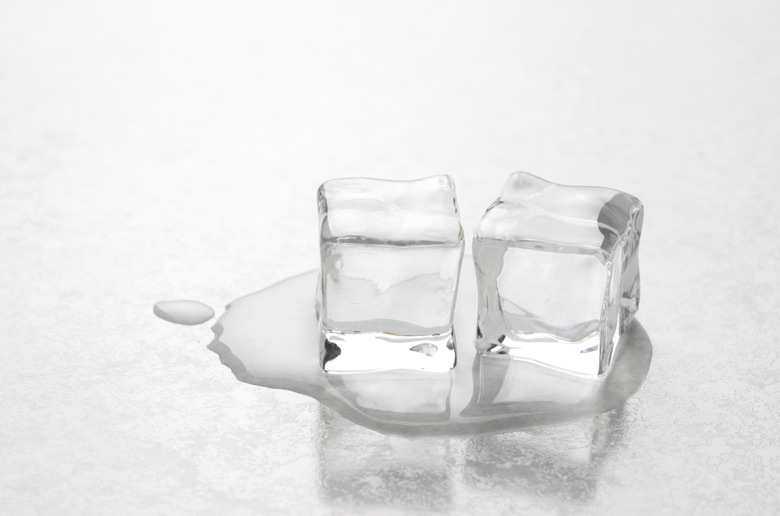Freezing & Melting Activities For Kindergarten
Young children are inherently curious about their world. Teachers and parents can build on that curiosity to teach kids basic scientific principles. Freezing and melting activities introduce several scientific concepts to kindergarten students, including liquids and solids as states of matter, Earth's water cycle and molecules, atoms and their behavior. By exploring the freezing and melting of different substances, kindergartners will get hands-on lessons about their world.
By Observation
By Observation
Observation is the first step in discovery. Kindergartners can observe the occurrence of water, or other substances, changing state by freezing and melting. You can use the outdoor weather to incorporate a mini field trip outside into the lesson. On a snowy day, give kids a bowl and have them collect snow to bring indoors. Let them watch the snow melt and discuss their observations. If the weather is cold but not snowy, fill plastic cups with an inch of water in the morning and bring them inside in the afternoon to watch the ice melt. On hot days you can make ice cubes in the freezer and bring them outside to melt. Show children that the water does not change weight when it changes form; have them watch you weigh water before and after it changes form. For any activity, help children collectively record their observations in a chart.
By Experience
By Experience
Children often learn best when they experience a concept through multiple senses. Allow kindergartners to hold ice cubes while they melt to feel the water changing form. Incorporate the sense of taste and smell into freezing and melting explorations by making juice pops or by melting chocolate chips. Have the kids observe, smell, touch, and taste the juice or chocolate chips before and after the freezing or melting. Ask questions such as does the juice taste the same in solid form as it does in liquid? Does the chocolate smell the same? Does the amount of chocolate or juice change? Help children discuss and record their observations by drawing in journals, filling in sentences, or completing charts.
By Explanation
By Explanation
Explorations of freezing and melting are a great way to introduce the concept of molecules and atoms to kindergartners. While they may not be ready to delve very deeply into molecular science, they can be receptive to learning that everything is made from smaller parts, that these parts are always moving, and they behave differently in different conditions. Demonstrate how molecules move closer together as a solid and further apart as a liquid using packing peanuts in a clear plastic bottle. Fill the bottle part way up with peanuts and show the solid state when the peanuts are resting together at the bottom of the bottle. Use a hairdryer set on low to create movement of the packing peanuts to demonstrate molecular movement in the "liquid" state. If students are interested, discuss gasses as the third state of matter.
What it All Means
What it All Means
The freezing and melting activities demonstrate the first law of thermodynamics: that matter and energy are neither created not destroyed. Kindergartners will gain hands-on experience with this law through their explorations of freezing and melting. Help children understand the concept's significance as it relates to the Earth's finite resources, especially the water cycle.
Cite This Article
MLA
Cummings, Eliza. "Freezing & Melting Activities For Kindergarten" sciencing.com, https://www.sciencing.com/freezing-melting-activities-kindergarten-7849842/. 24 April 2017.
APA
Cummings, Eliza. (2017, April 24). Freezing & Melting Activities For Kindergarten. sciencing.com. Retrieved from https://www.sciencing.com/freezing-melting-activities-kindergarten-7849842/
Chicago
Cummings, Eliza. Freezing & Melting Activities For Kindergarten last modified March 24, 2022. https://www.sciencing.com/freezing-melting-activities-kindergarten-7849842/
